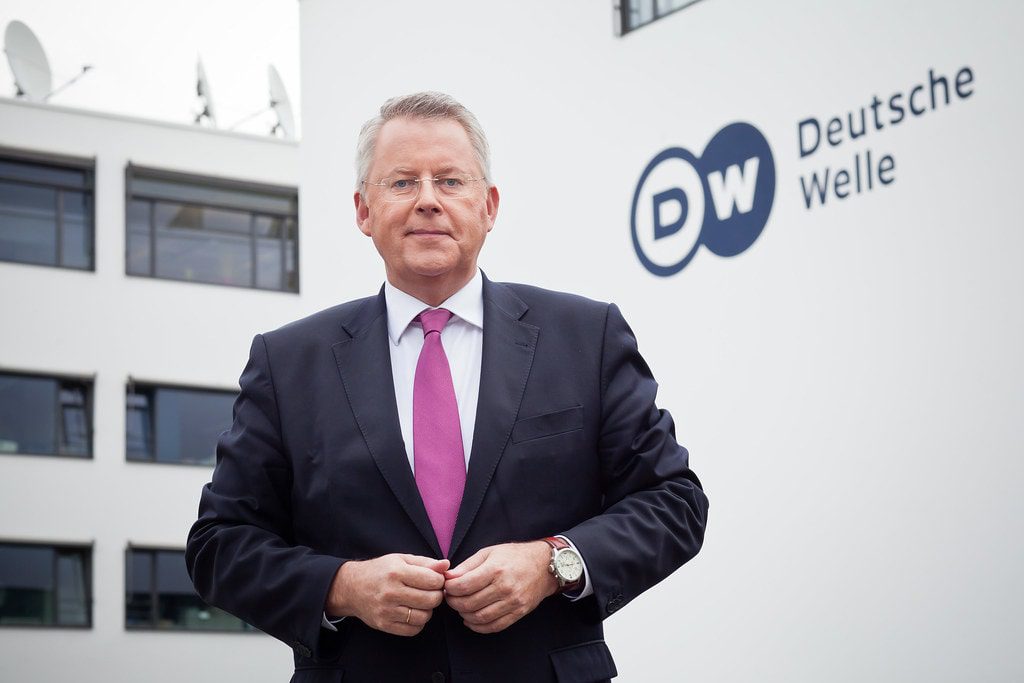
Russia and Germany have started a real war for the control of the media—in the context of the Ukrainian crisis.
Germany began by taking the decision to ban the broadcasting of the Russian media Russia Today within its territory on Wednesday, February 2nd. The federal agency ZAK banned the German language broadcast of Russia Today (RT) on its website and mobile application, because “the necessary authorization according to media law” was “neither requested nor granted.”
Moscow has denounced these blocks as “illegal.” In retaliation, Russia has requested the closure of the local office of the German international radio and television station Deutsche Welle.
This is the first time that a Western media has been banned in Russia since the fall of the Soviet Union.
The retaliatory measures announced by Moscow do not only involve the closure of the local Deutsche Welle office. Its employees will also have their accreditation withdrawn, and the media will no longer be broadcast throughout Russia. The Russian foreign ministry has also announced the launch of a procedure to have Deutsche Welle classified as a “foreign agent”—a controversial term that was already at the heart of the closure of the NGO Memorial a few weeks ago.
The president of the German channel, Peter Limbourg, considered the Russian decision particularly absurd and excessive. For the time being, the closure has not yet been directly or officially terminated within the Moscow office, which continues its work. The channel has had licenses since 2005 to be broadcast over Russian territory in German and in English. Its licenses are respectively valid until 2027 and 2025.
The Russian counter-offensive is not limited to Deutsche Welle. Moscow has announced that it will implement other sanctions in connection with the RT case. Moscow mentioned possible penalties to online platforms that “arbitrarily and unjustifiably deleted the channel’s accounts”—an apparent reference to U.S. giant YouTube, which suspended RT’s German-language account on December 16th.
Russia’s relations with Western media have deteriorated in recent months in respect to worsening international relationships. In August 2021, a BBC journalist was expelled from Moscow, something that had not happened for ten years. Russia justified this measure by claiming reciprocity, believing that London had discriminated against its journalists in the United Kingdom—including those from the RT and Sputnik media—by refusing to grant them work visas.
For its part, Germany has already shown its distrust of Russian-born media in the recent past. In January 2022, German Interior Minister Nancy Feaser explained in the newspaper Die Zeit that she was considering closing down the alternative messaging service Telegram, accused of encouraging the spread of alternative views on the pandemic. The Telegram application is in the hands of a Russian billionaire based in Dubai, Pavel Durov. He is also the founder of the VKontakte application, a competitor of Facebook, but since bought by people close to Putin—even while Durov is considered an opponent of the Moscow regime. This time, however, the conflict between RT and Deutsche Welle directly pits the Germans against the Russian government.
